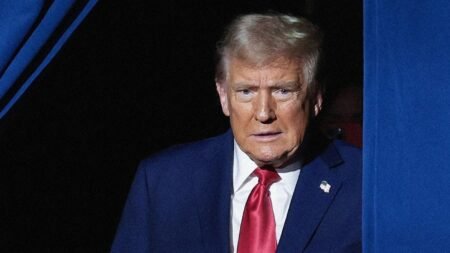Warren Buffett, often called the “Oracle of Omaha,” is a revered figure in the world of investing. His Berkshire Hathaway has delivered remarkable returns over the years, outperforming the S&P 500 Index by a significant margin. Buffett’s success is not only attributed to his ability to identify financial bargains, but also to his keen understanding of consumer behavior. He has built his investment strategy around finding enduring franchises at reasonable prices and holding onto them for the long term.
Buffett’s annual shareholder meeting this year was notable for being the first one without his long-time partner Charlie Munger, who passed away last November. Buffett expressed his reliance on Munger’s counsel over the years, which has helped in shaping his investment philosophy. The meeting also highlighted how Buffett uses behavioral psychology to guide his investment decisions, referencing examples like his investment in American Express and Goldman Sachs during times of extreme fear in the market.
One of Buffett’s largest investments, Apple, has been a prime example of how consumer behavior influences his decision-making. He discussed how he and Munger learned about consumer behavior through experiences like buying a furniture chain and See’s Candies. This knowledge has been instrumental in shaping their investment strategy, leading to successful investments in iconic companies like Coca-Cola and American Express. The discussion at the annual meeting shed light on the rationale behind Berkshire’s various holdings and their potential future outlook.
Despite the success of Berkshire’s investments, Buffett has been cautious in deploying the company’s massive cash pile into new opportunities. He cited historically low corporate tax rates as a reason for trimming Berkshire’s holdings in Apple, emphasizing the importance of paying taxes as a responsible corporate citizen. Buffett also expressed his preference for investing in U.S.-based companies, citing American Express and Coca-Cola as examples of businesses with global reach and enduring appeal.
Buffett’s reflections on the emergence of generative artificial intelligence highlighted his concerns about the potential impact of new technologies on society. He drew parallels to the development of nuclear weapons, expressing uncertainty about how AI will shape the future. Despite these concerns, Buffett remained optimistic about the potential for AI to bring about positive change, while also acknowledging the risks associated with its misuse. As one of the most successful investors of all time, Buffett’s insights hold sway in the investment community and beyond.
Buffett’s commitment to philanthropy was also a key focus at the annual meeting, with examples like shareholder Ruth Gottesman’s generous donation to Albert Einstein College of Medicine. Buffett praised the generosity of Berkshire shareholders who have contributed significant sums to charitable causes, citing their willingness to defer consumption in order to benefit society. This spirit of giving back has been a defining characteristic of Buffett and the Berkshire Hathaway community, showcasing the power of responsible investing and wealth management. As Buffett looks towards the future, he remains grateful for the support of his shareholders and the opportunity to continue making a positive impact on the world.












